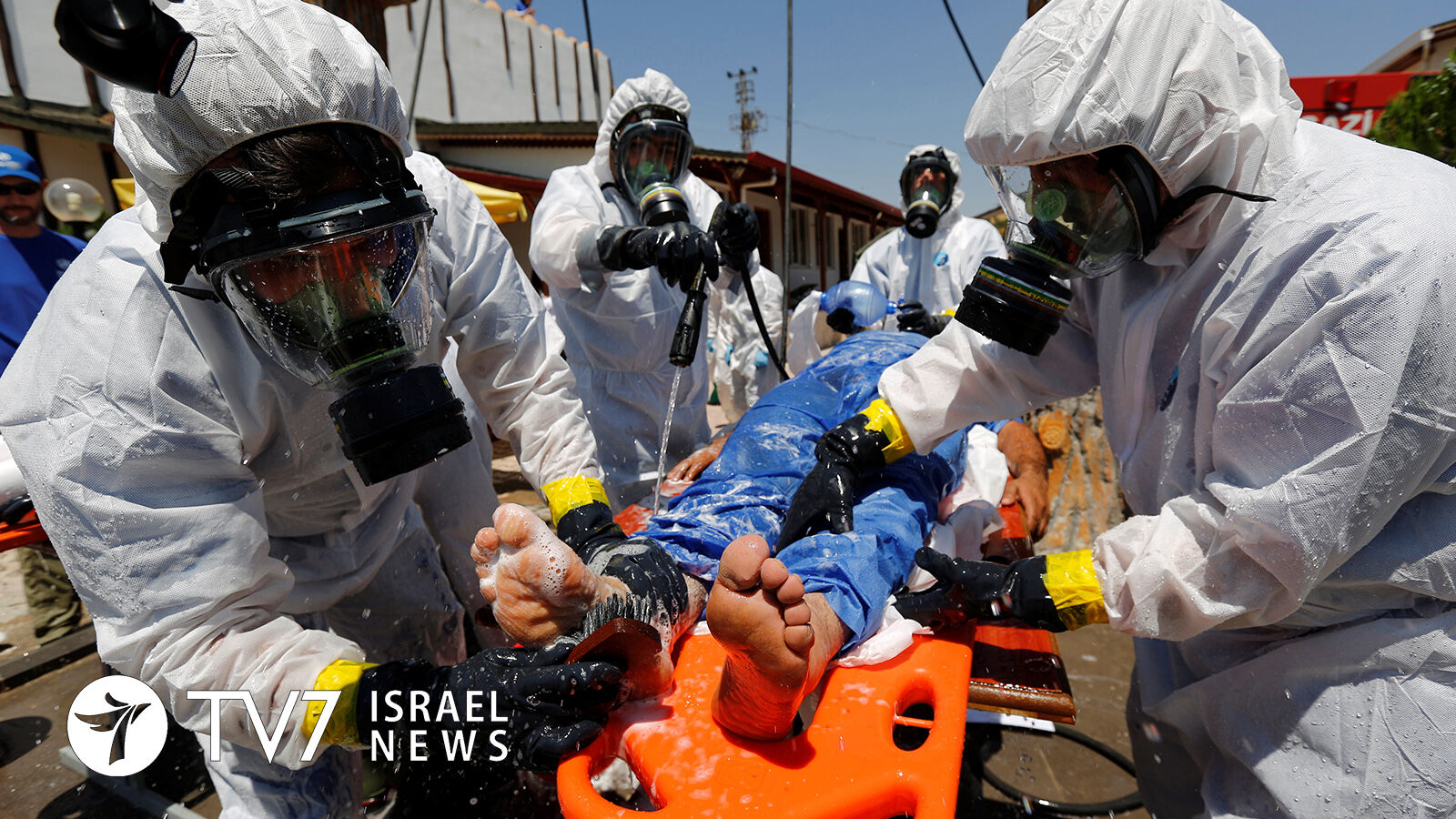Damascus’ declaration of its chemical weapons program “cannot be considered accurate due to gaps, inconsistencies and discrepancies,” the United Nations High Representative for Disarmament Affairs told the Security Council.
By Jonathan Hessen and Erin Viner
This, according to the UN News agency, reporting that during presentation of an update on the implementation of Security Council Resolution 2118 (2013) regarding the elimination of Syria’s chemical weapons, Izumi Nakamitsu called on the regime of President Bashar al-Assad to cooperate with the Organization for the Prohibition of Chemical Weapons (OPCW).
The Assad regime denies use of chemical weapons since being pressured to surrender its arsenal in 2013.
Repeated investigations by the United Nations and the OPCW found that loyalist government forces used the nerve agent sarin and chlorine barrel bombs on insurgent-held territory in the war-torn country between 2015 and 2018 estimated to have killed or injured thousands.
While the Arab Republic has submitted 17 amendments and several supplements to its initial declaration, 20 out of 24 outstanding issues remain unresolved, revealed the UN disarmament chief, who stressed that Syria’s “full cooperation” is “essential to closing these outstanding issues.”
“At this stage, the declaration submitted by the Syrian Arab Republic cannot be considered accurate and complete in accordance with the Chemical Weapons Convention,” Ms. Nakamitsu told the UNSC.
“The OPCW Secretariat has not yet received the requested declaration from the Syrian Arab Republic on all undeclared types and quantities of nerve agents produced and/or weaponized at the former chemical weapons production facility (CWPF) that was declared by the Syrian Arab Republic as never having been used to produce and/or weaponize chemical warfare agents,” she underscored, adding that she has “also been advised that the OPCW Technical Secretariat has not yet received a response from the Syrian Arab Republic on the requests for information and documentation regarding the damage caused during an attack on 8 June 2021 to a military facility that housed a declared former chemical weapons production facility.”
Western intelligence officials confirmed to TV7 a report published by the Washington Post last month asserting that Israel has attacked chemical weapons facilities in Syria twice over the past two years in a campaign to prevent the Iran-allied Arab Republic from renewing production of the toxic arms.
The US newspaper reported that Israeli Air Force (IAF) jets targeted 3 military targets near the cities of Damascus and Homs linked to Syria’s former chemical weapons program on 8 June 2021, as well as a compound and villa tied to the procurement of a chemical that can be used in nerve agents in March 2020.
Israeli officials have voiced concern about the possibility of Syrian chemical weapons falling into the hands of radical Islamist groups fighting in the Syrian Civil War, which erupted in 2011.
The High Representative also informed the Security Council that “the OPCW has not been able to schedule the 25th round of consultations in Damascus due to ‘continued refusal’ by the Syrian Arab Republic to issue an entry visa for one member of the team,” while “efforts to convene a limited meeting with Syrian experts at the OPCW’s Headquarters” in the Hague have “also been unsuccessful,” said the UN.
Echoing the UN’s disarmament chief over Syrian untrustworthiness, United States Ambassador to the UN Linda Thomas-Greenfield warned UNSC member states, “We continue to witness Syria’s complete disregard for its obligations and deliberate attempts to delay and obstruct the OPCW’s work. The OPCW still assesses that Syria’s declaration cannot be considered accurate and complete in accordance with the obligations under the Chemical Weapons Convention and Security Council Resolution 2118.”
“We should not be fooled by Syria’s veneer of cooperation while it continues its obfuscating narrative,” emphasized Ambassador Thomas-Greenfield.
Russia’s Deputy UN Ambassador Dimitry Polyanskiy, however, responded to High Representative’s report by challenging the impartiality of the OPCW, claiming that, “the so-called Syrian chemical dossier has lately lost even the appearance of impartiality and the objective establishment of facts, which could confirm the use of chemical weapons in this country. Today, it’s no more than simply another lever to use by our Western colleagues to criticize Syria in order to prove what cannot be proven.”
Syria’s own UN Ambassador Bassam Sabbagh also denied allegations that his war-torn country has not been truthful over its development of chemical weapons.
“Syria rejects any attempts to question the Syrian declaration and Syria’s cooperation with the OPCW and its technical Secretariat. We reject any baseless accusations that rely on erroneous information, and any attempts to jump into conclusions based on misinterpretations and probabilities without relying on accurate physical evidence,” said the Damascus envoy, adding that, “Some of the technical issues discussed between the Syrian National Authority and the technical Secretariat are subject to multiple and varying scientific interpretations. They must be discussed and examined in detail, and they cannot be settled hastily or selectively.”
